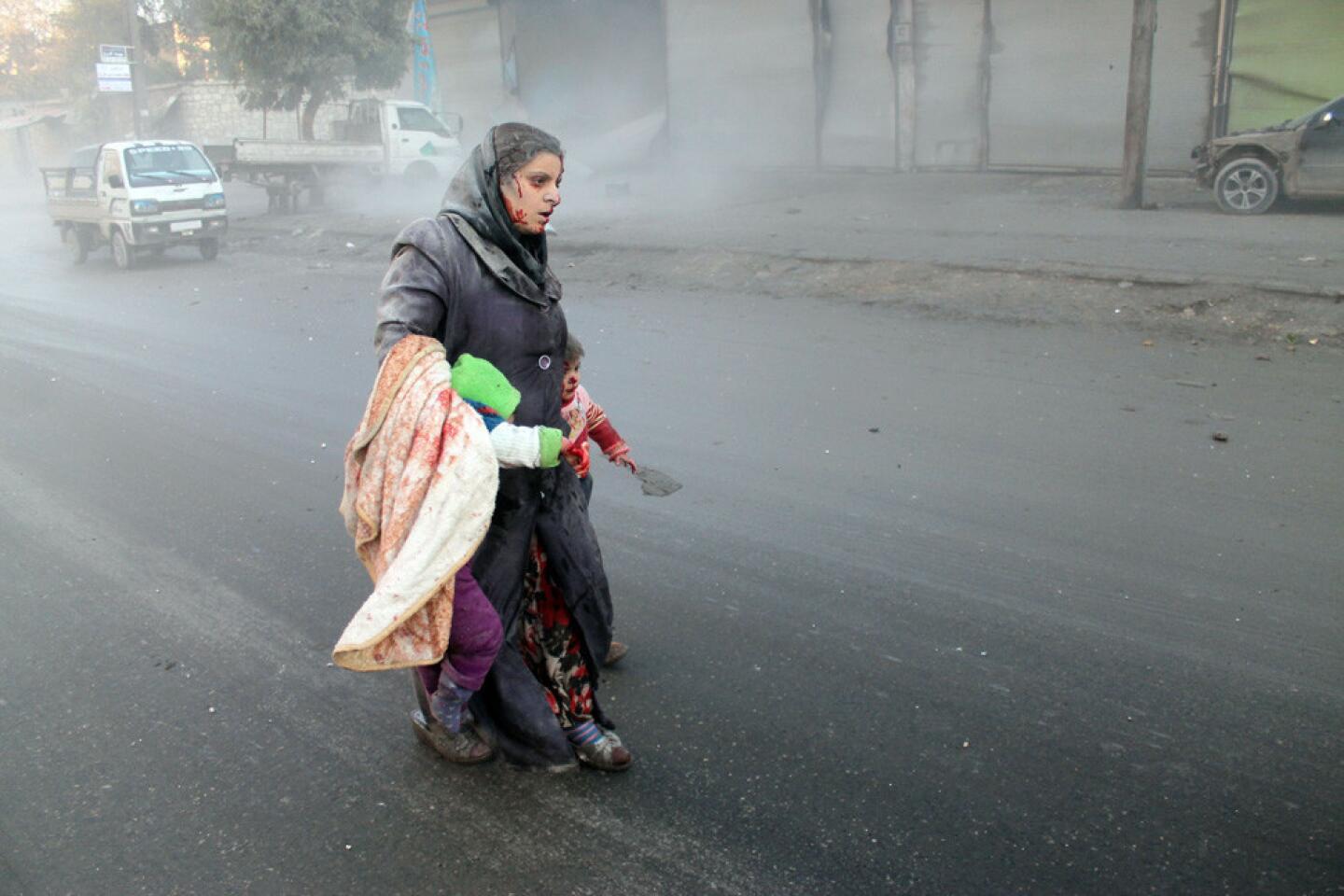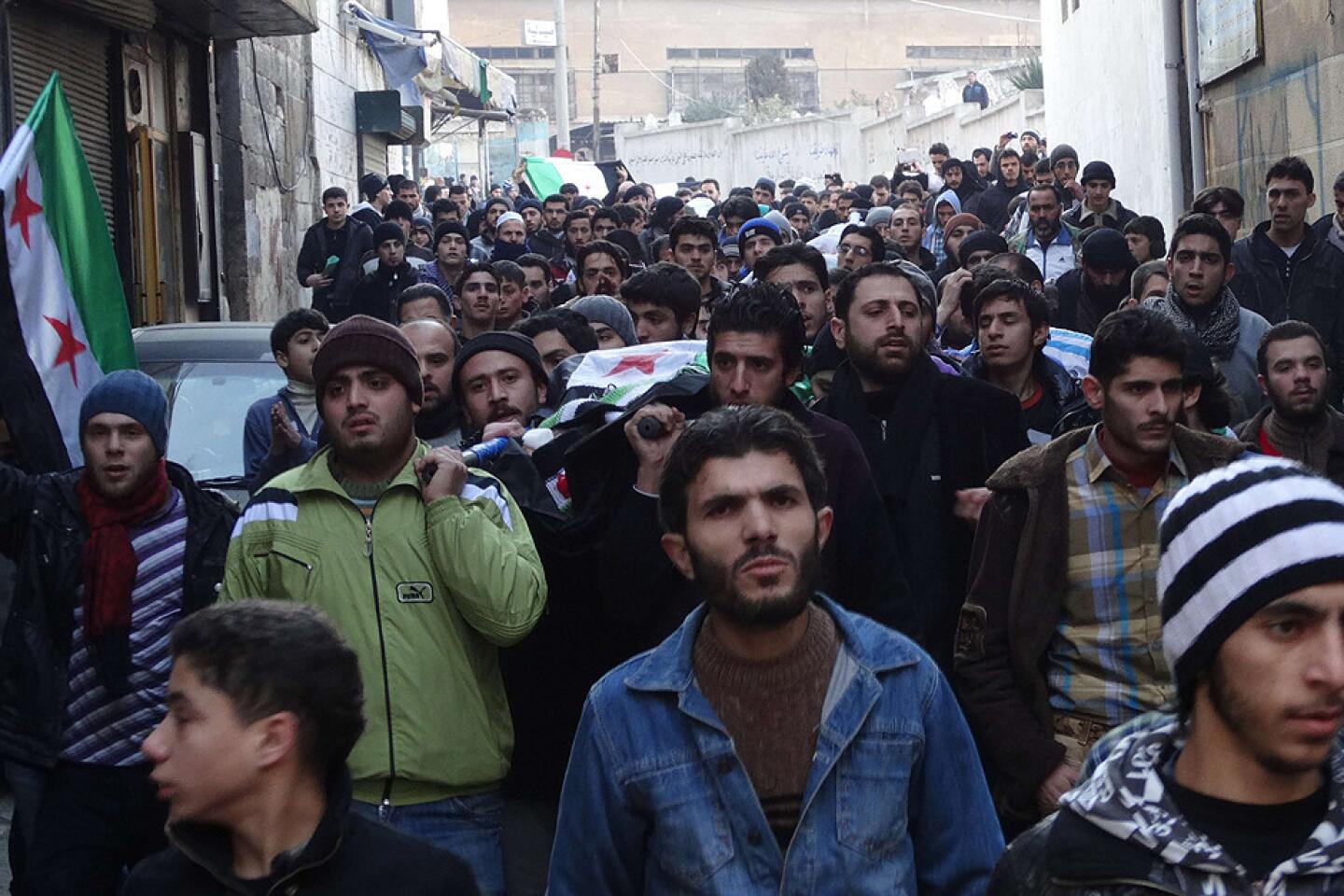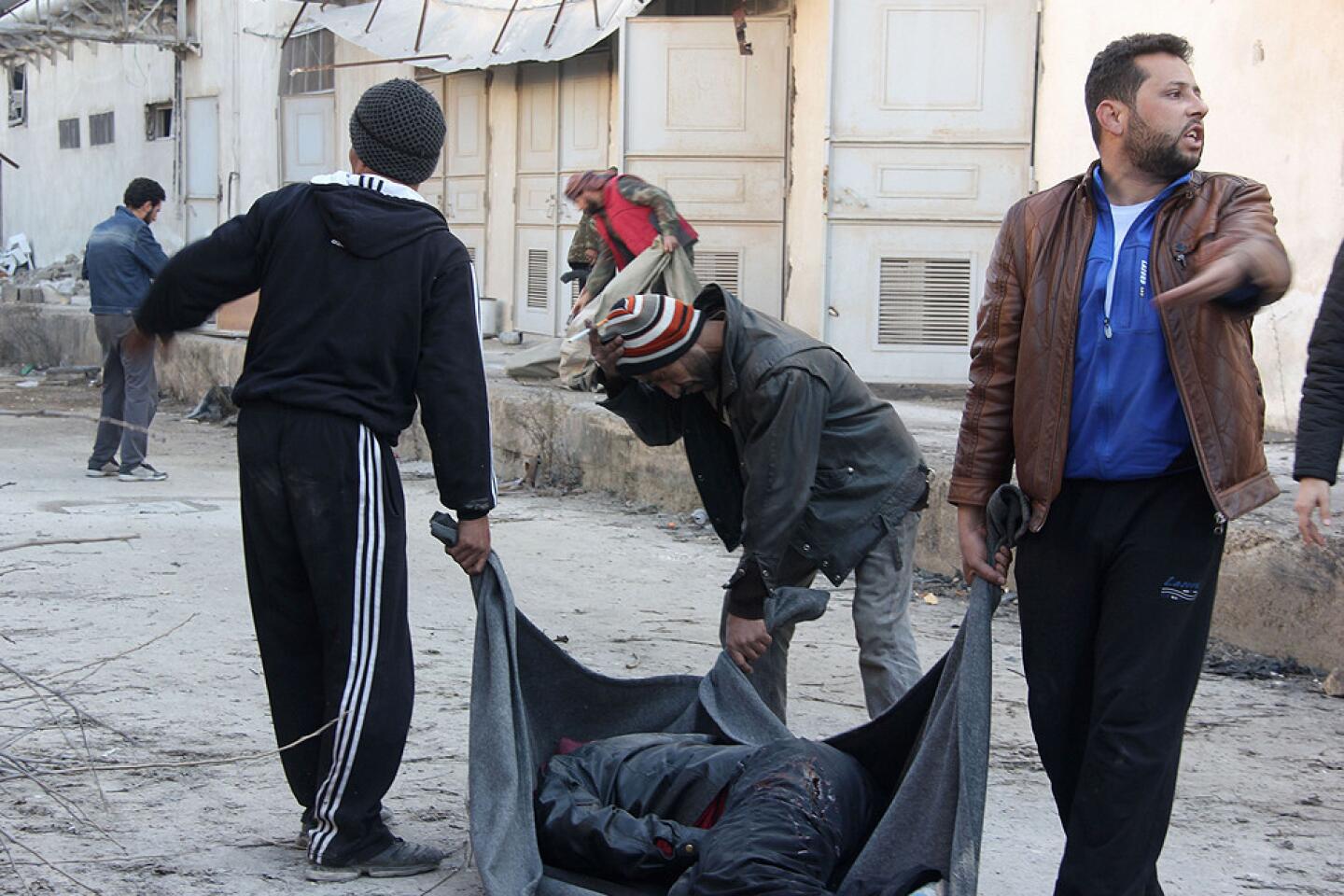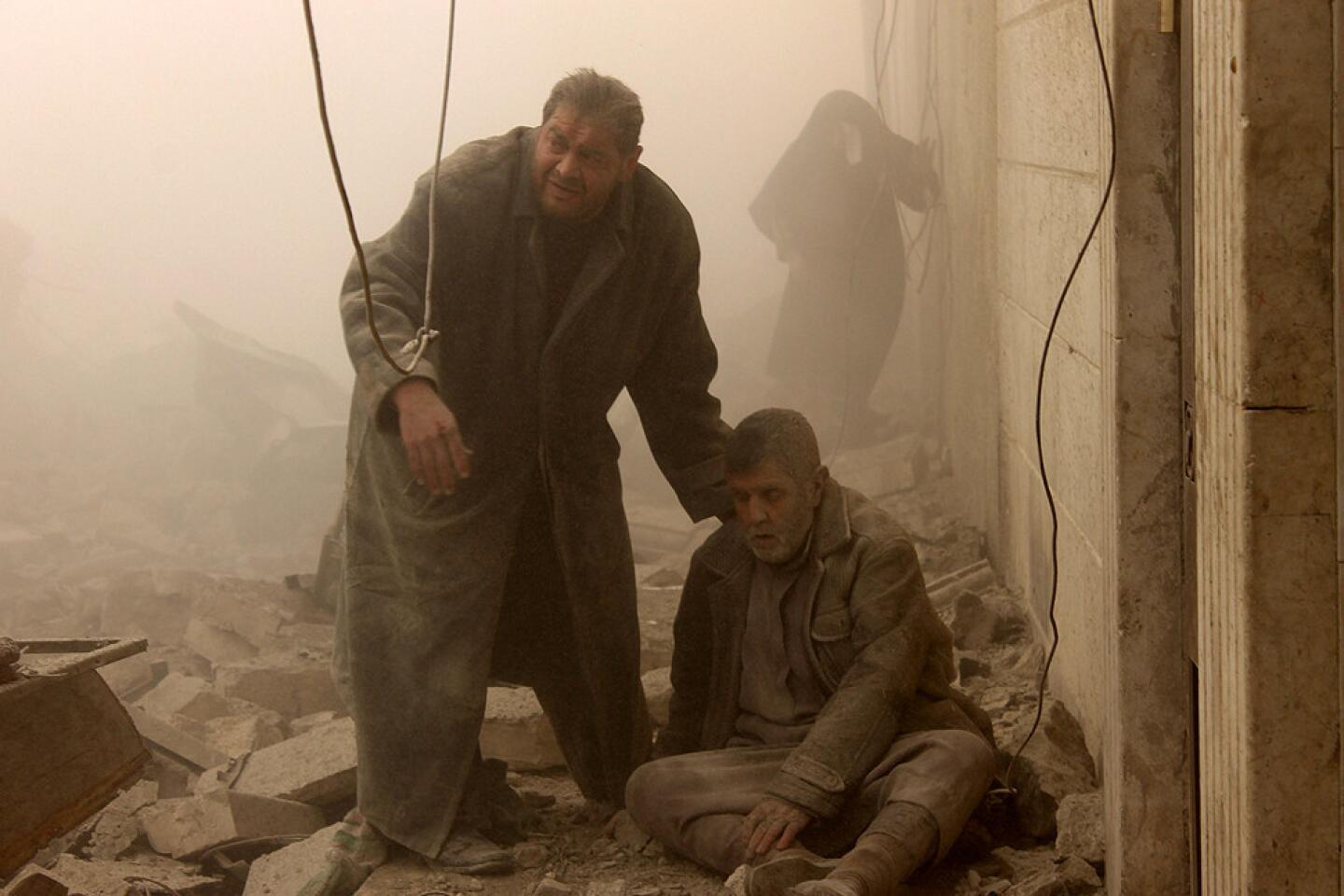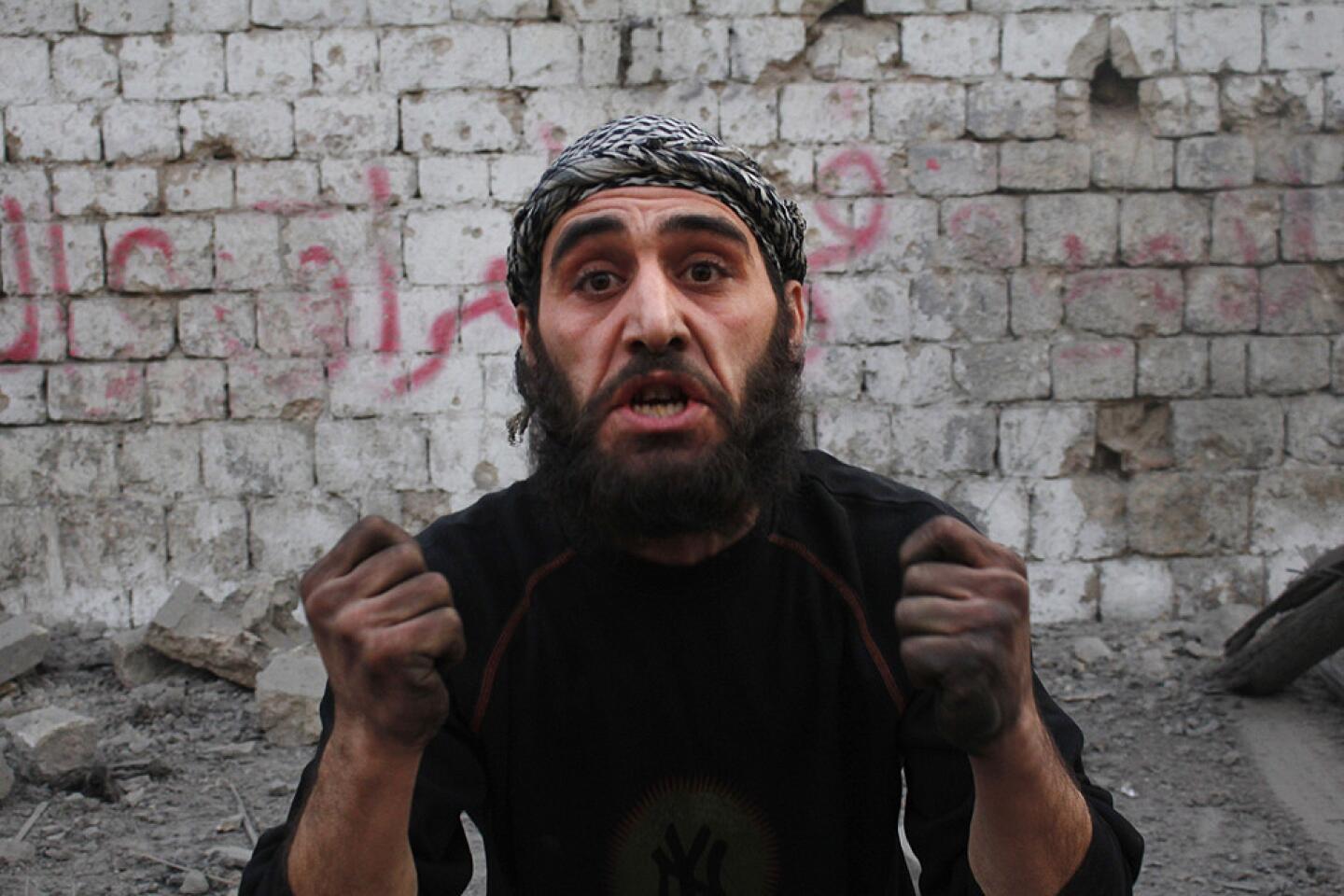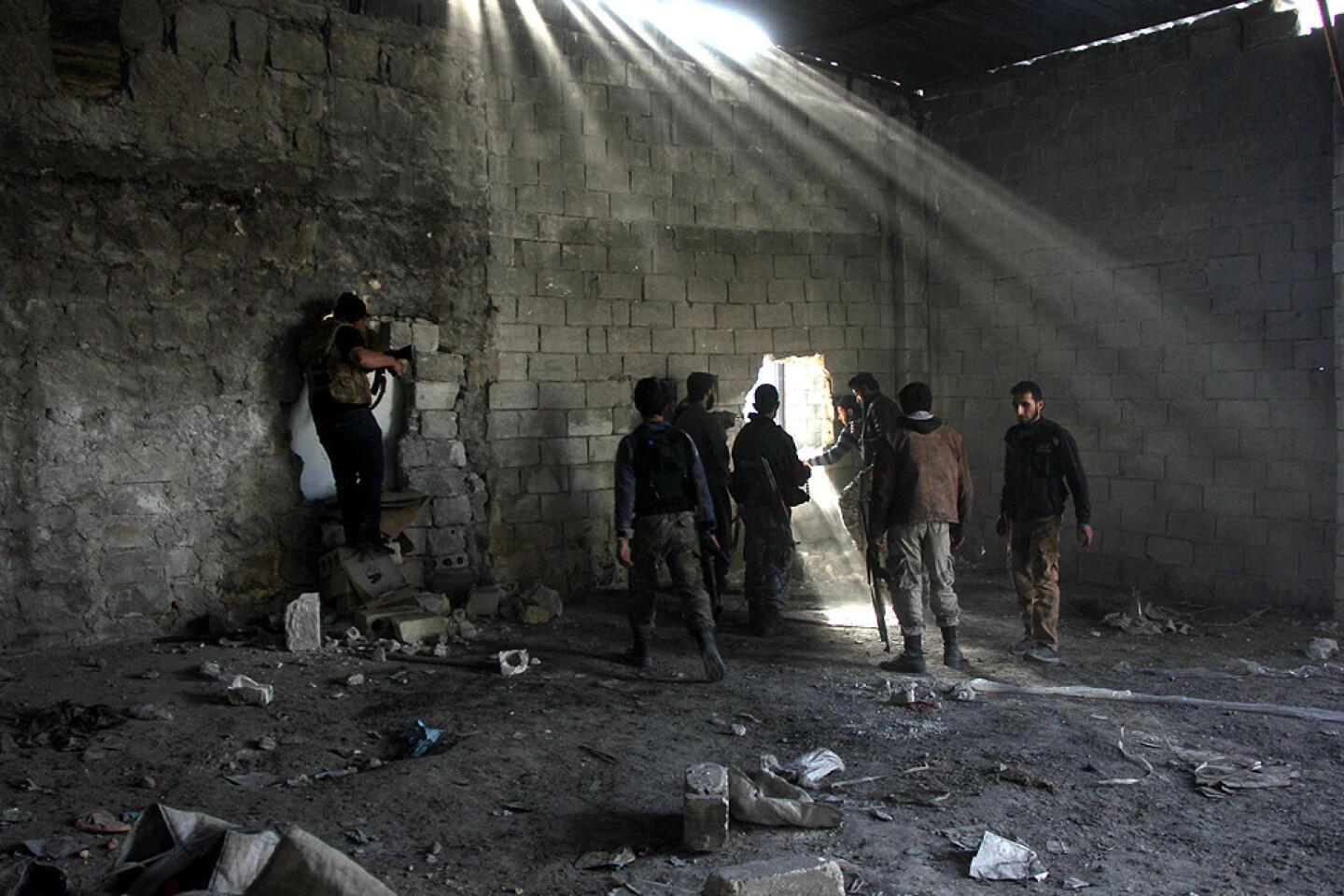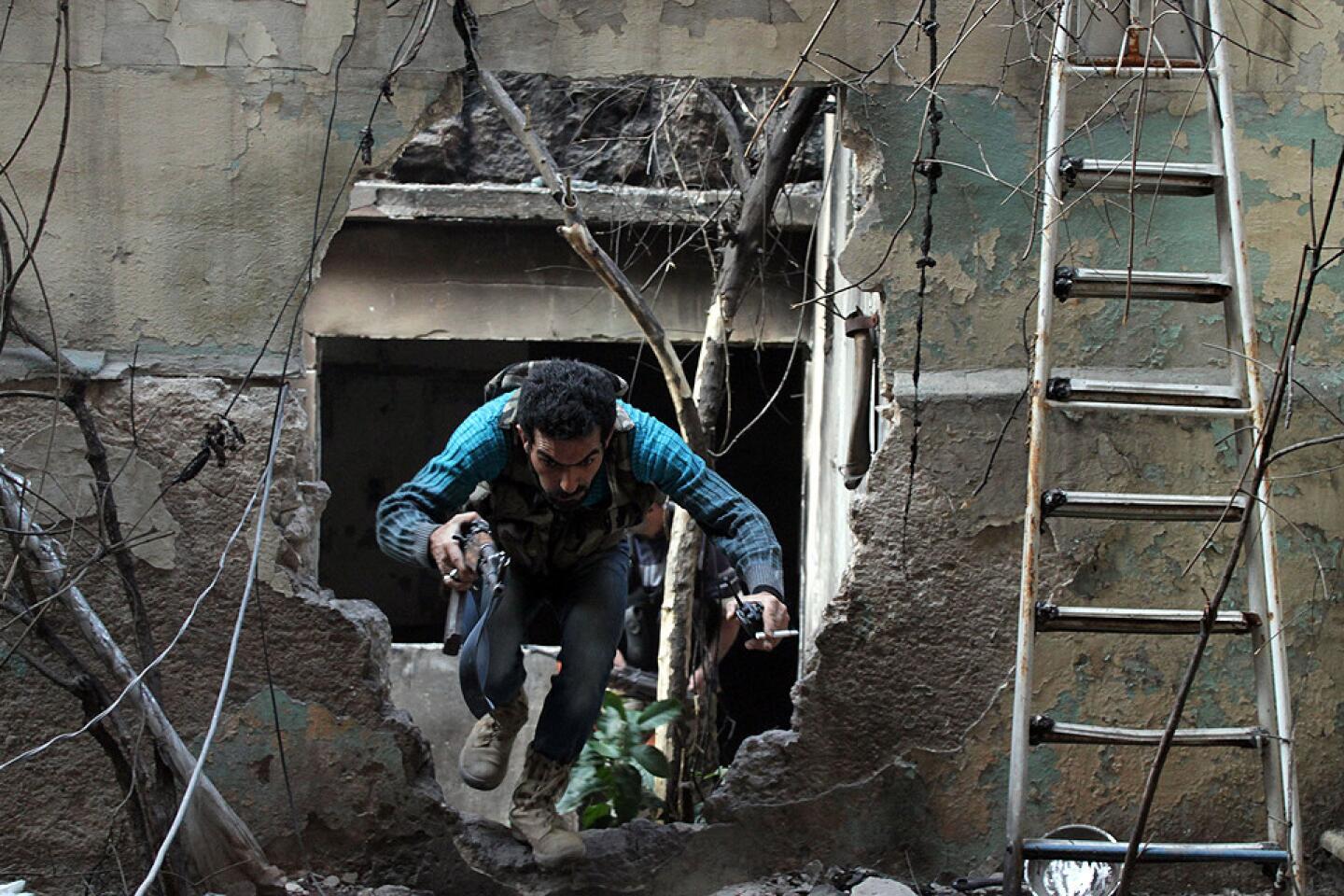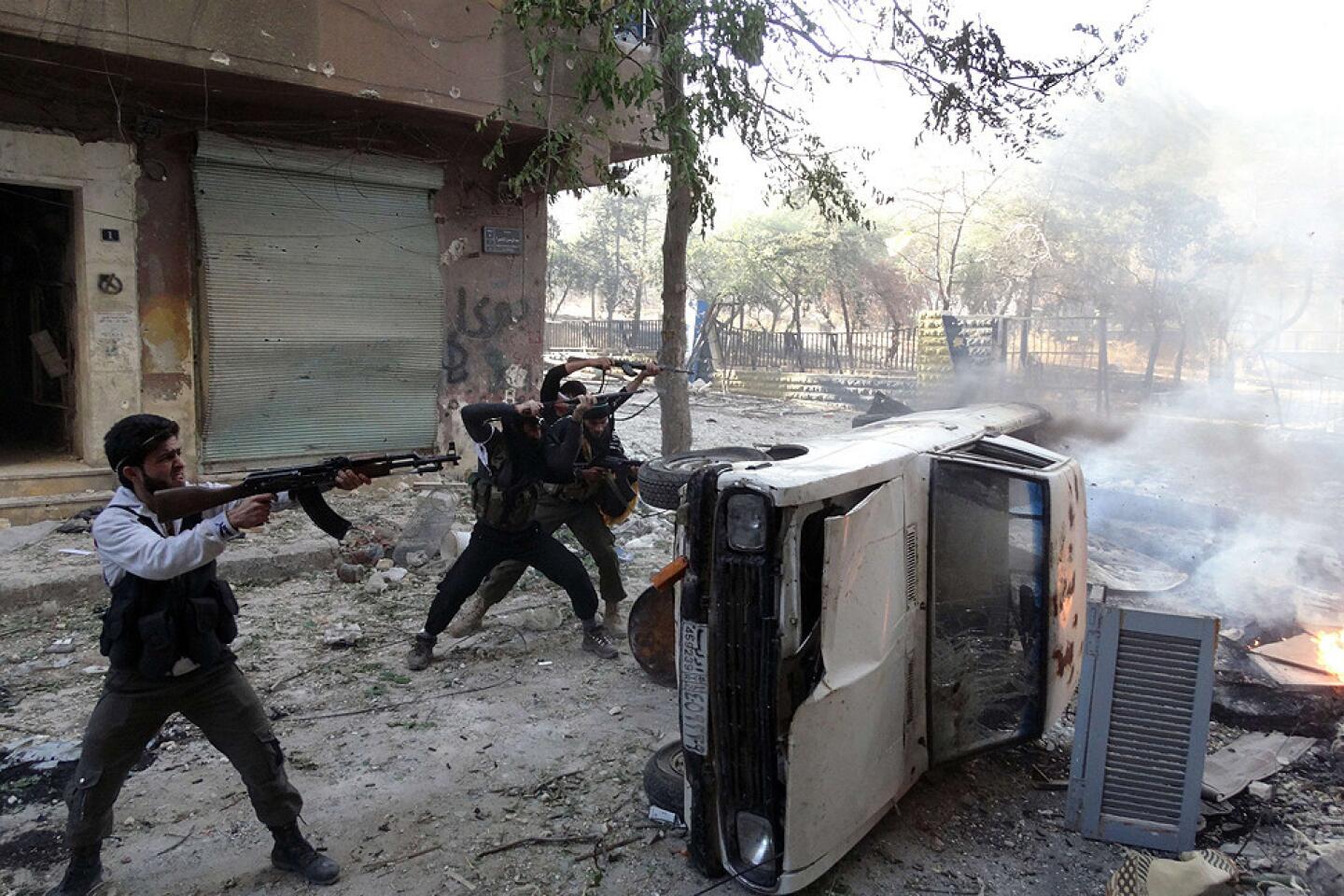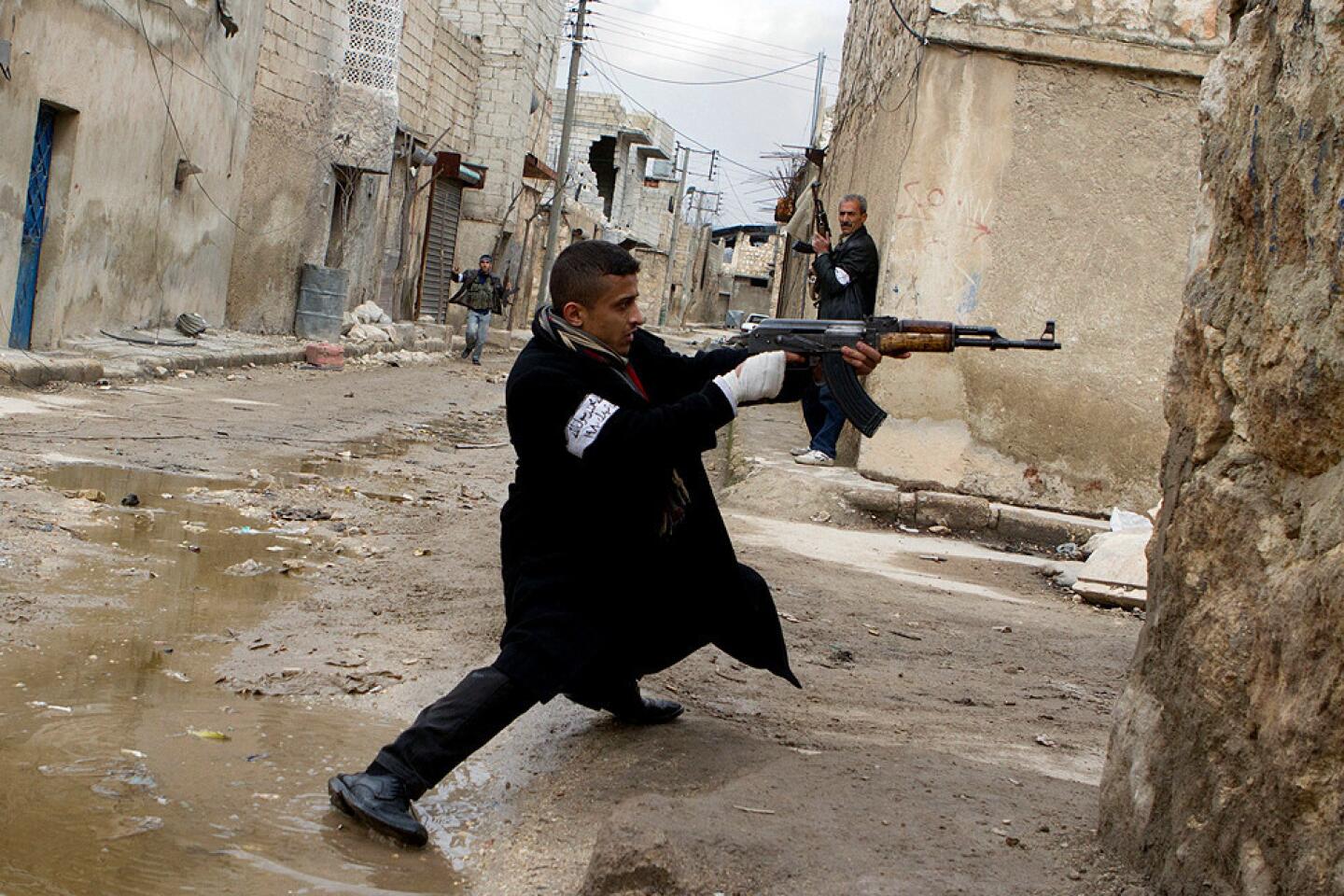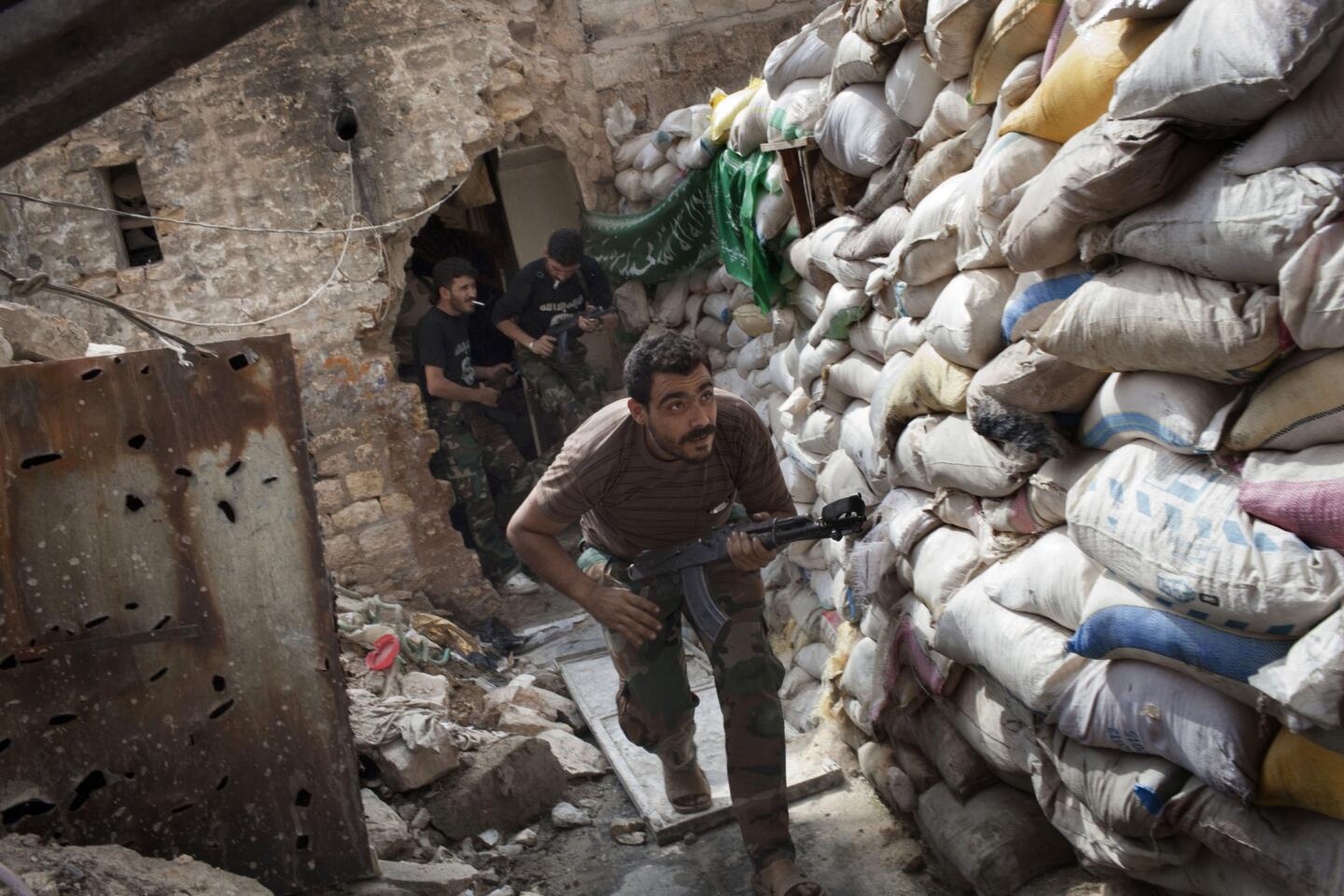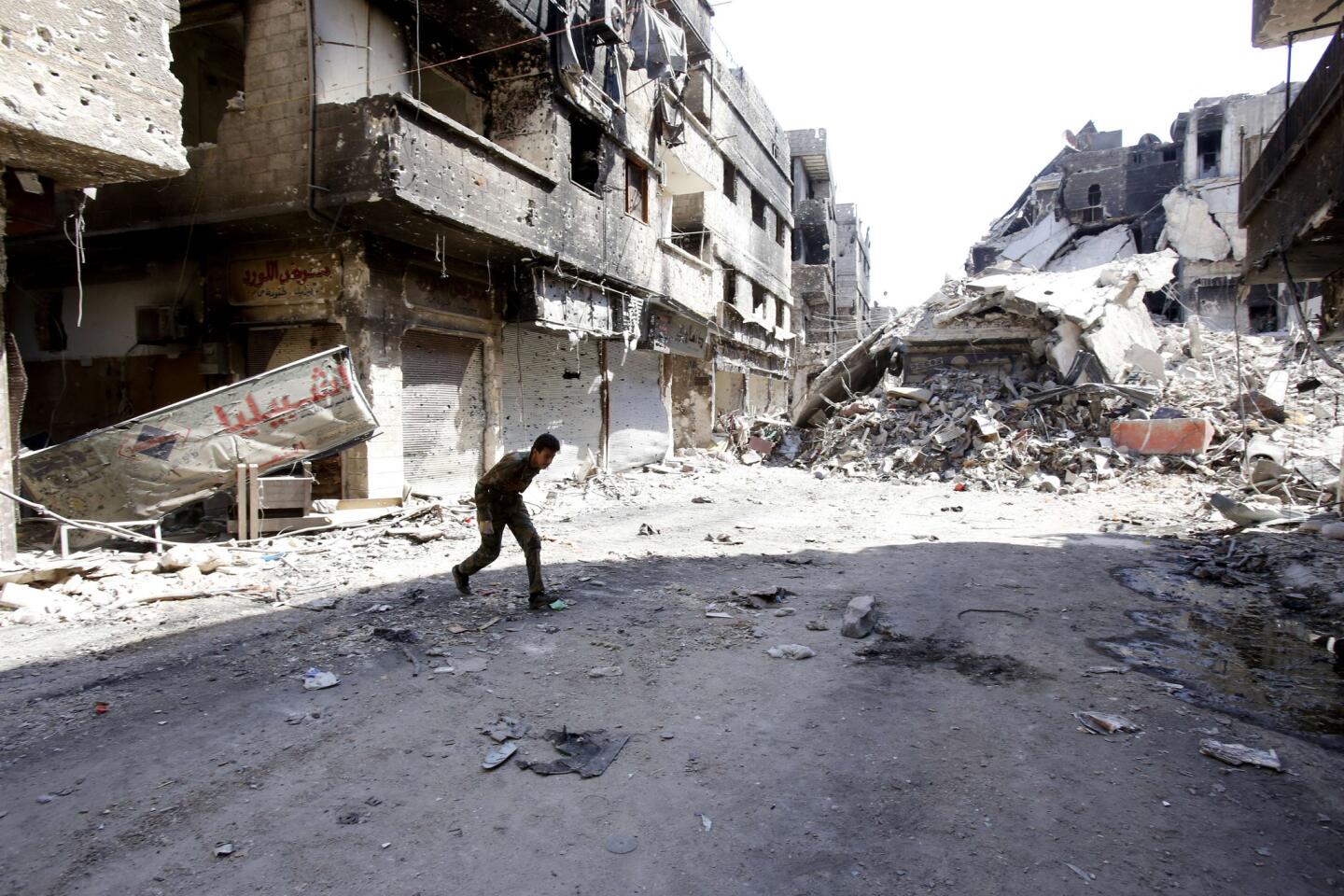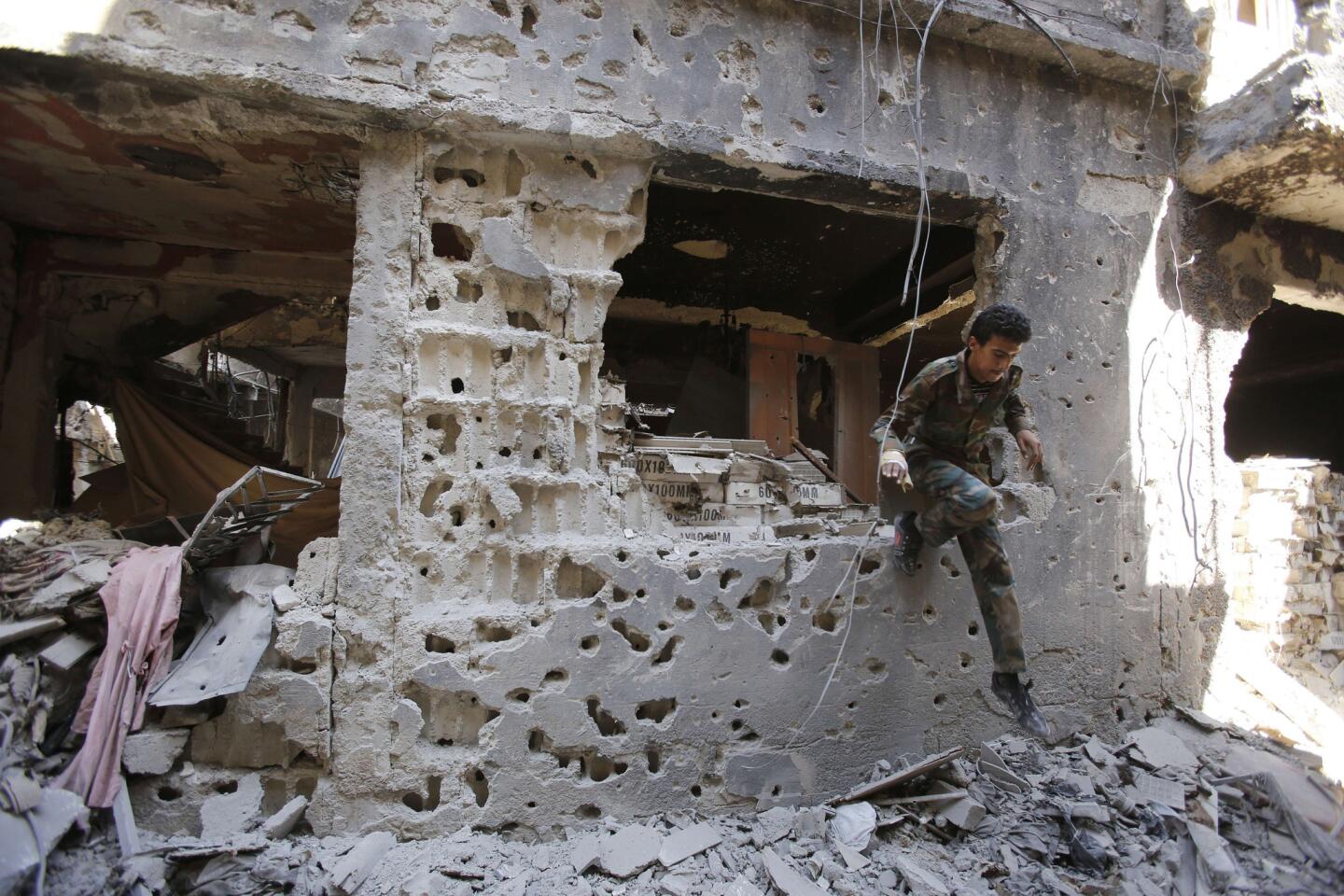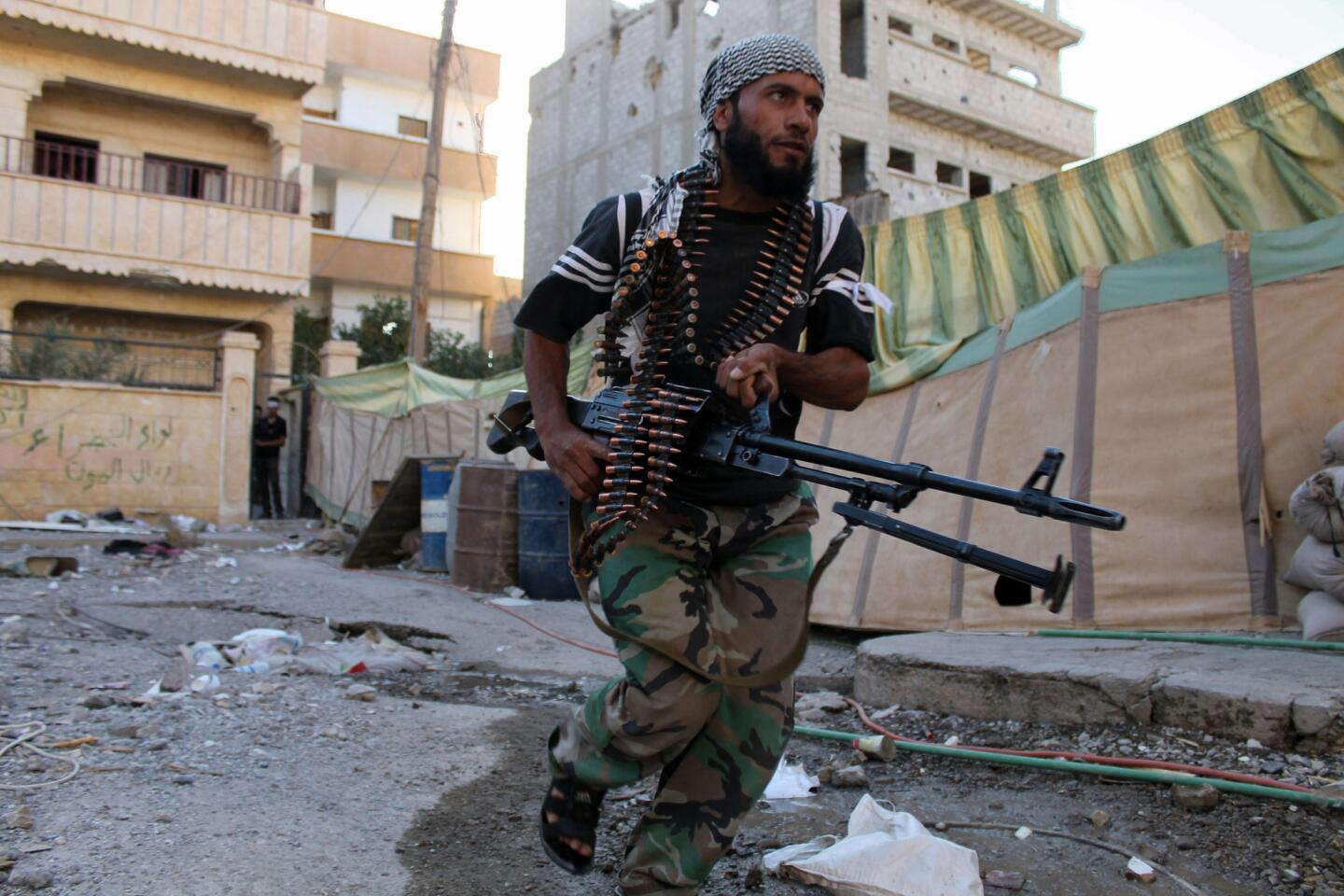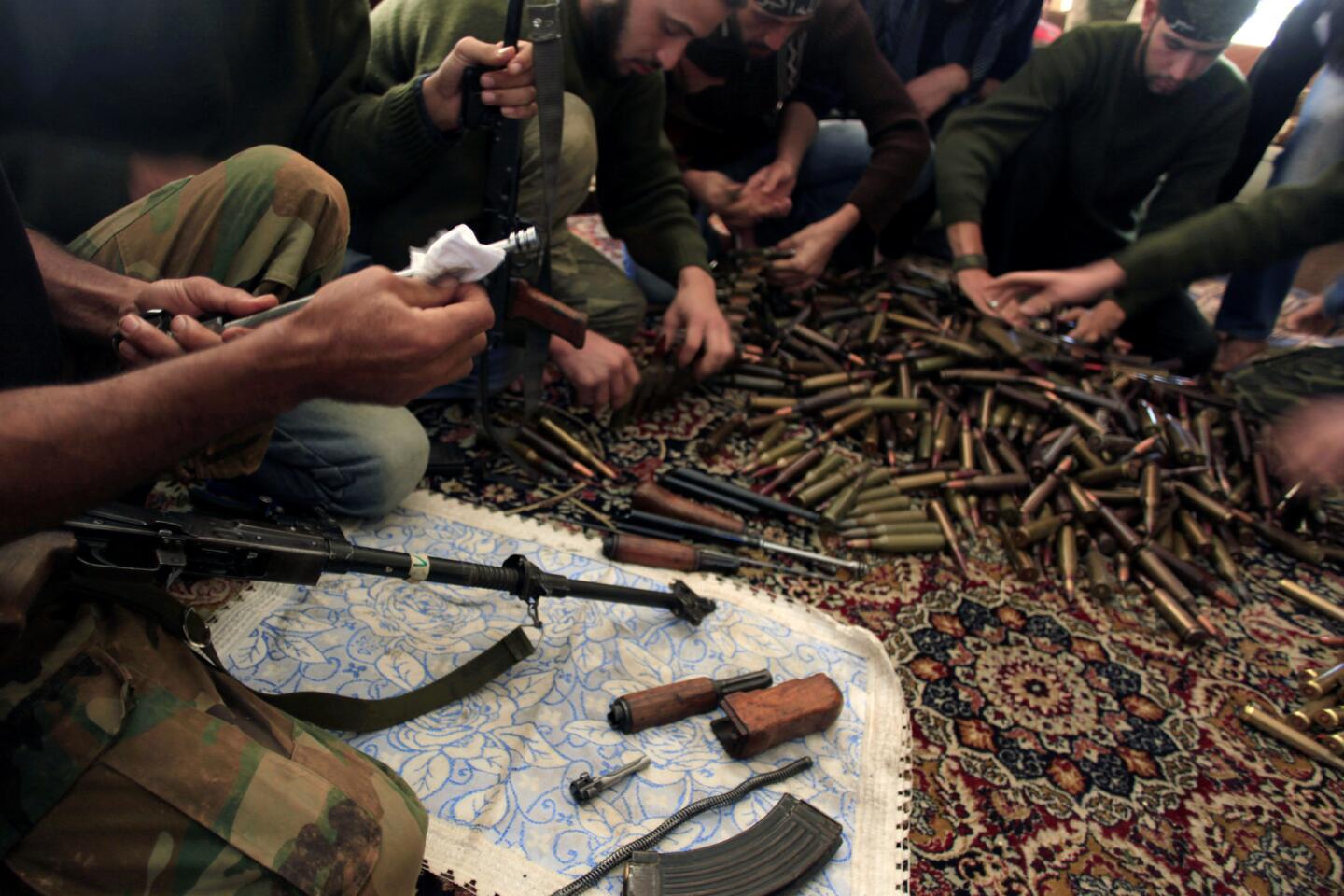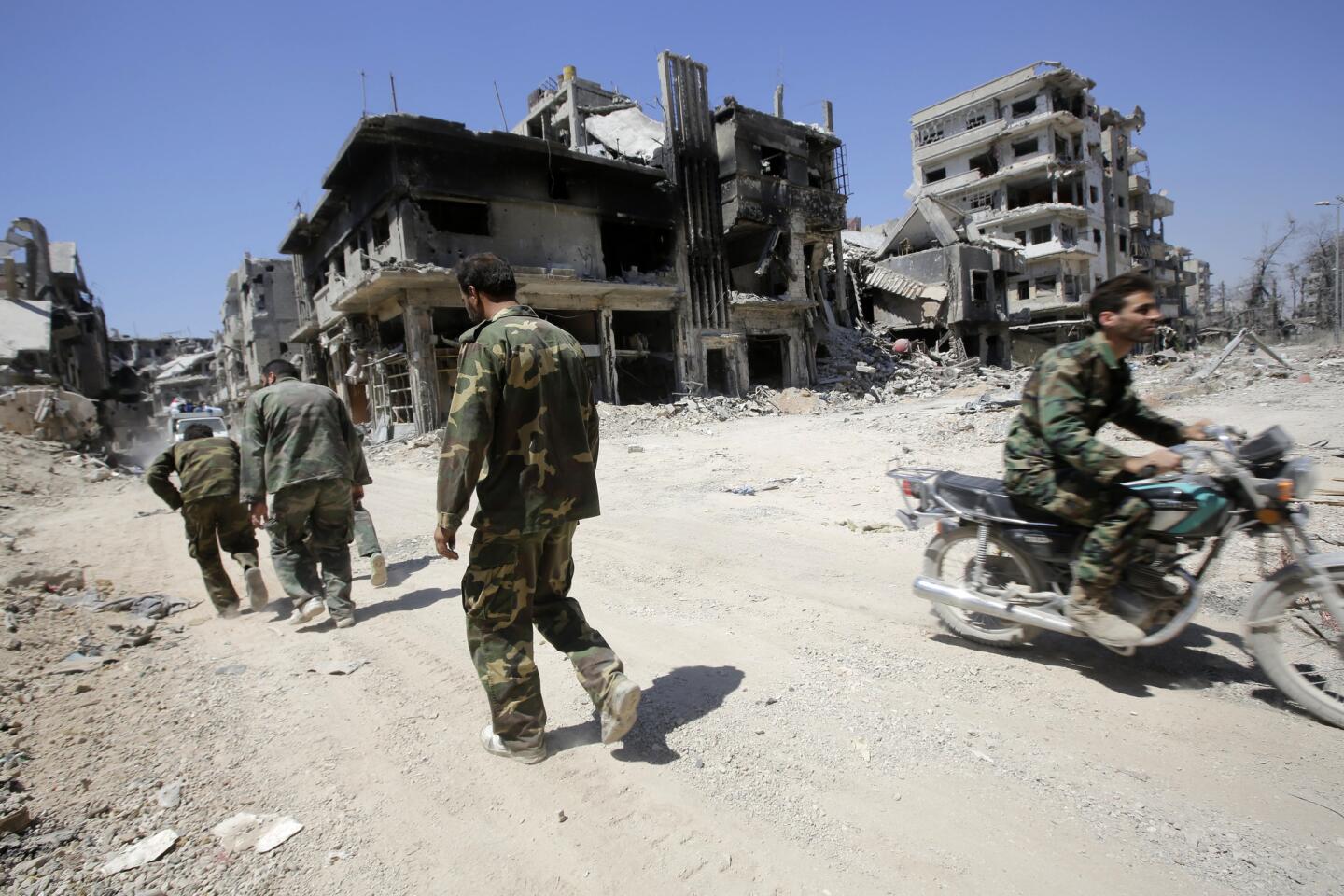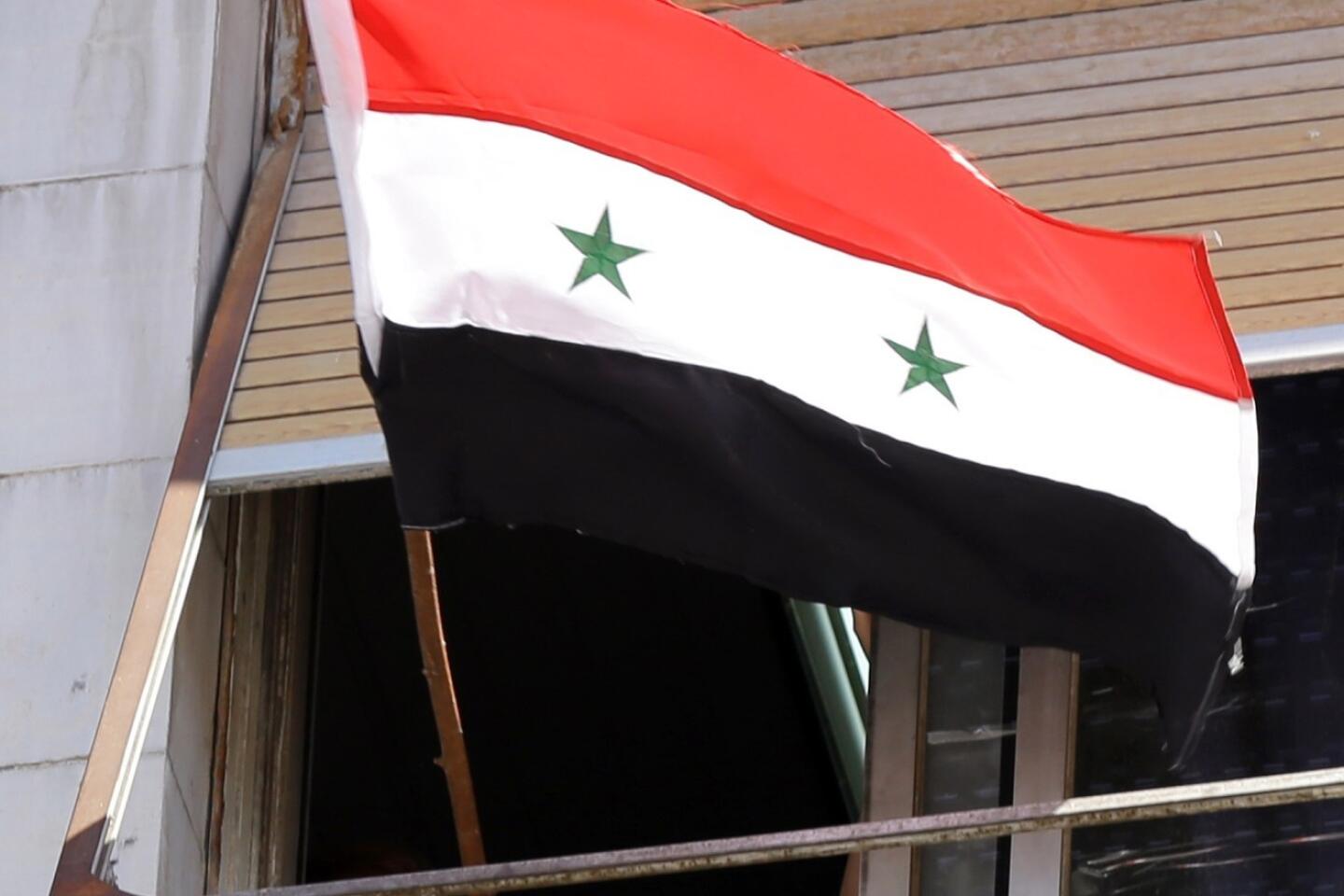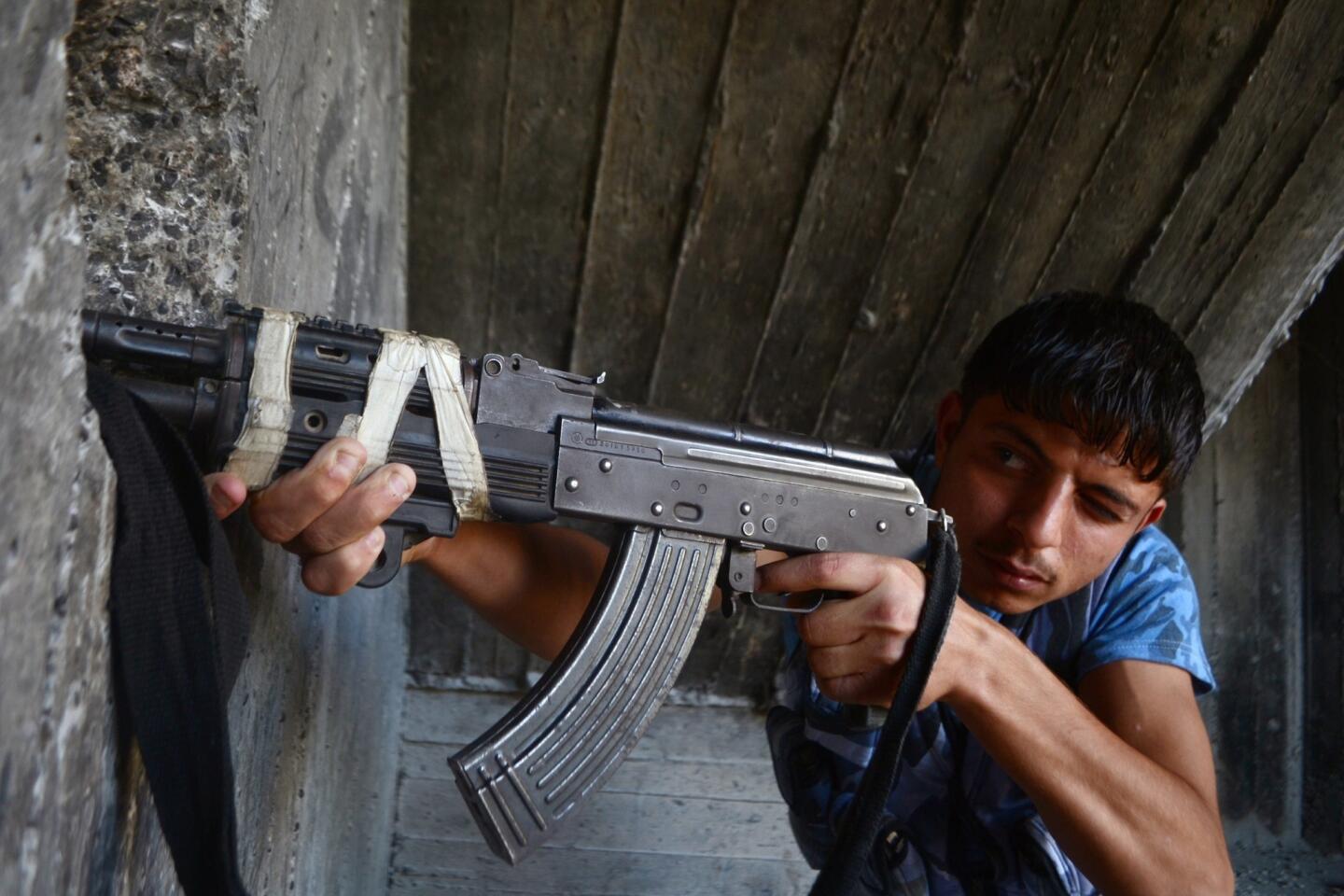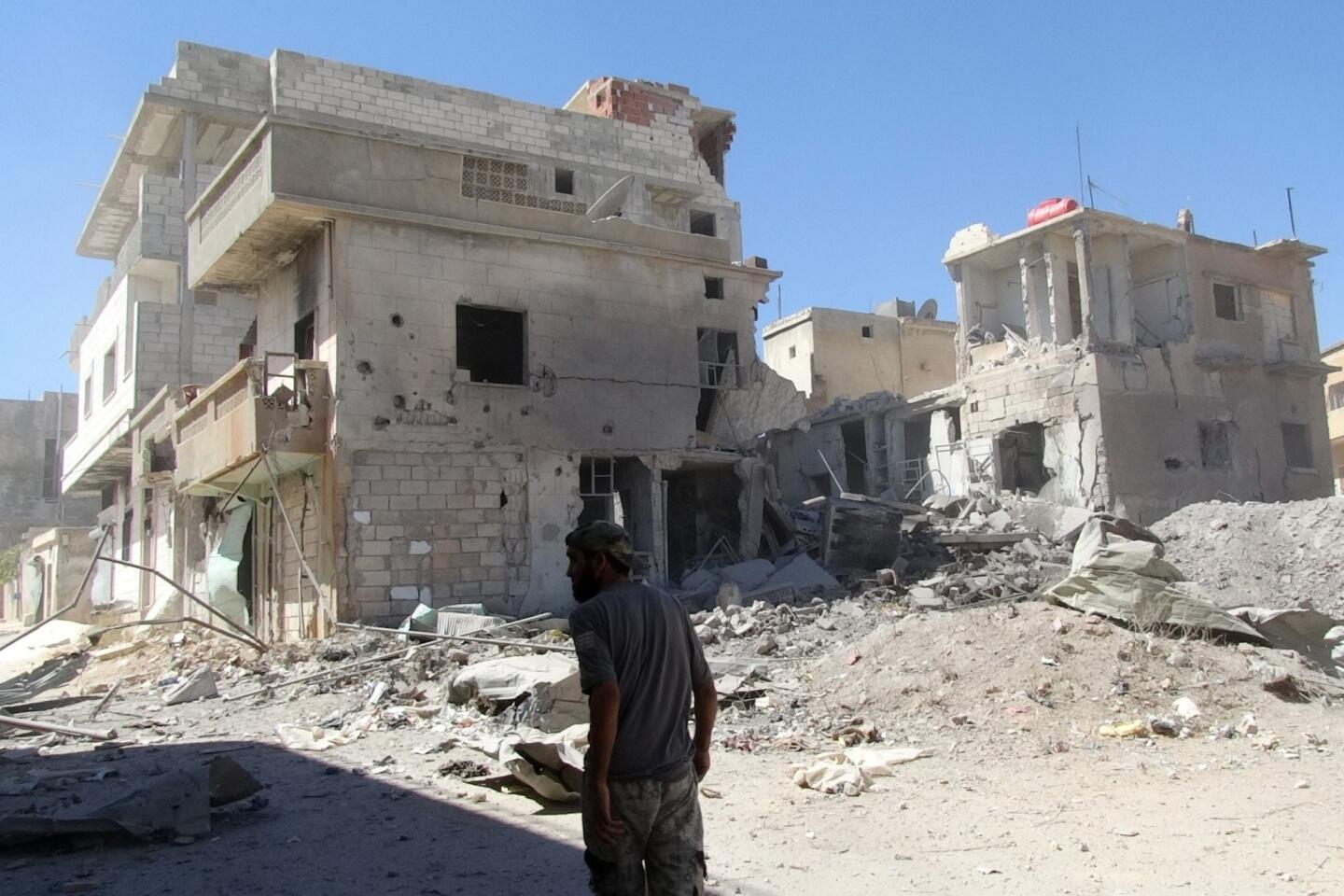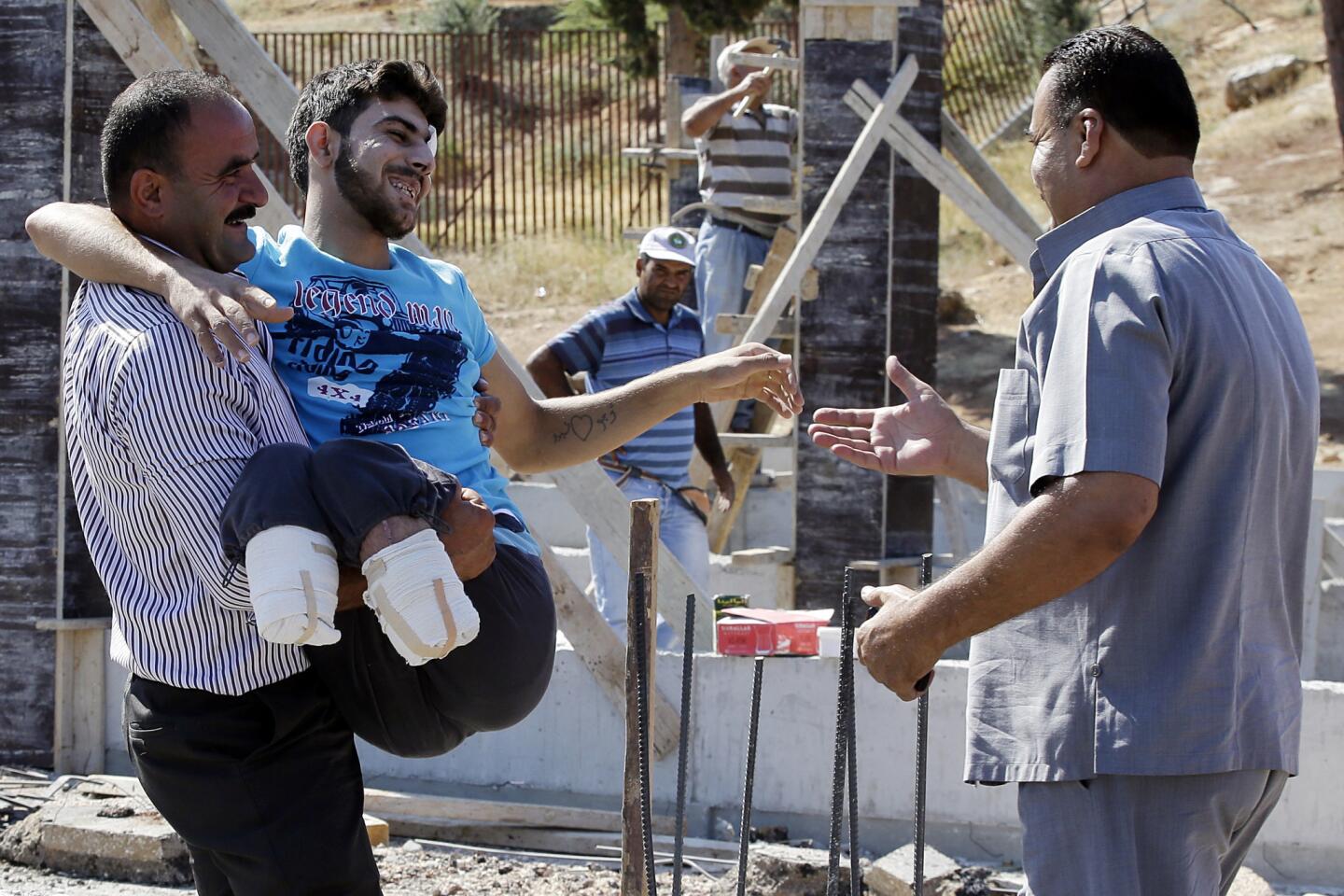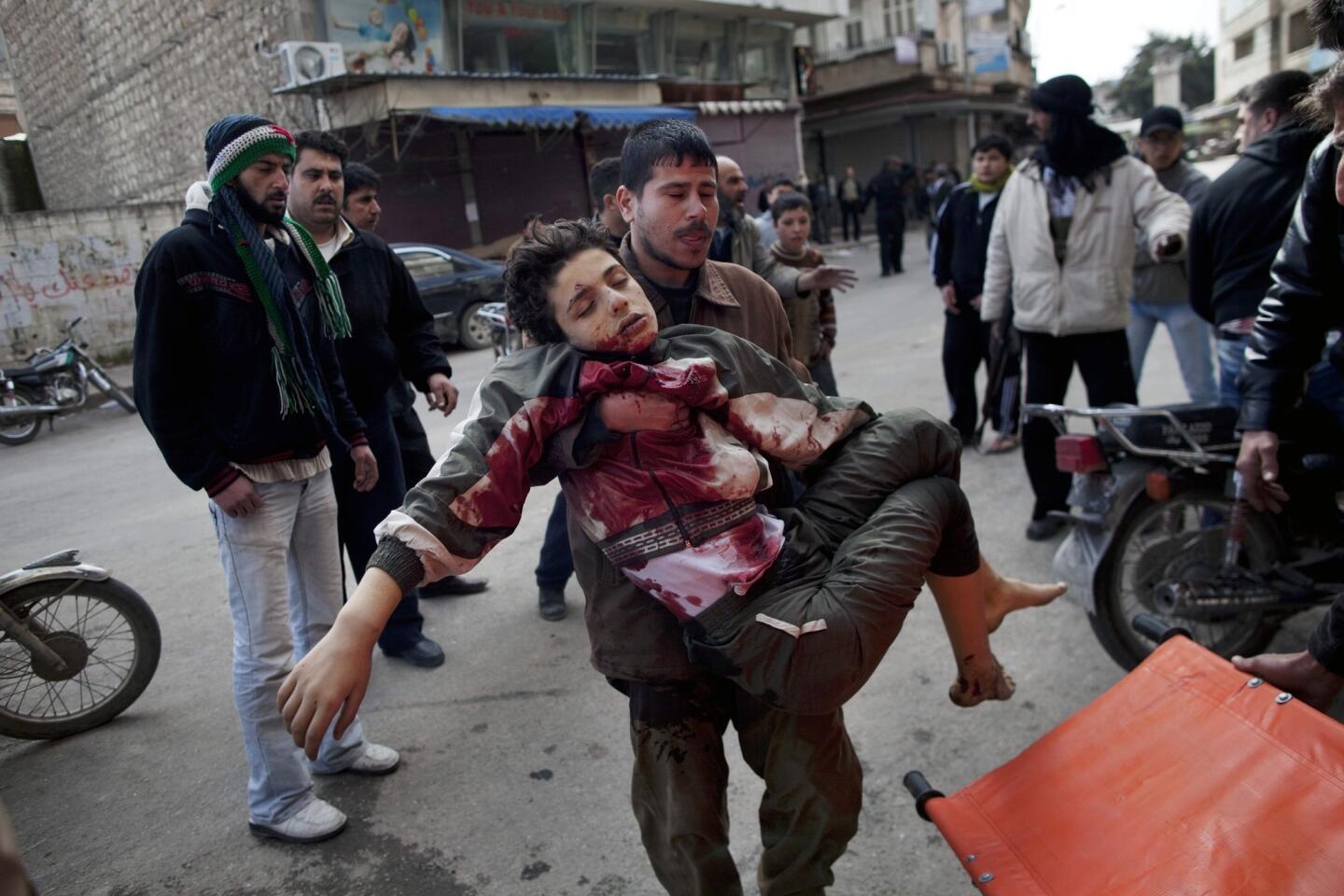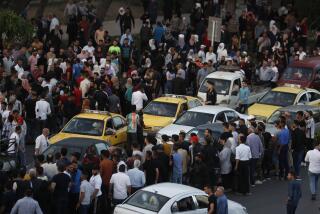Second group of chemical weapons inspectors is heading to Syria
- Share via
WASHINGTON — A second wave of chemical weapons inspectors is heading to war-battered Syria this week as the international effort to disarm President Bashar Assad’s poison gas program races to meet its United Nations-ordered deadlines, officials said Tuesday.
The Organization for the Prohibition of Chemical Weapons, the lead technical agency in the operation, said additional experts will reinforce the 19 inspectors and 16 U.N. logistics and security personnel who started work in Damascus last week on a plan to dismantle, destroy or impound Syria’s toxic stockpiles.
Operating under supervision of the inspectors, Syrian personnel began disabling the arsenal over the weekend, using cutting tools and grinders to ruin or destroy unfilled warheads, bombs and laboratory equipment used to mix precursor chemicals to make lethal nerve gases. The U.N. has set a Nov. 1 deadline for destroying Syria’s ability to produce chemical weapons.
“These developments present a constructive beginning for what will nonetheless be a long and difficult process,” Ahmet Uzumcu, director general of the Netherlands-based chemical weapons organization, said in a statement Tuesday.
Syrian state television broadcast images of the inspectors at work. The video showed two men in protective gear examining what appeared to be a chemical plant at an unidentified site. The pair scrutinized and tagged switches, and peered beneath a row of metal drums like those used to store chemicals.
U.N. officials said the disarmament effort will grow to about 100 experts over the next few months. Under a U.S.-Russian plan endorsed by the Security Council, Syria has until June 30 to eliminate its stockpiles of lethal gases, including mustard, VX and sarin.
But with security arrangements still unclear, U.N. Secretary-General Ban Ki-moon told the Security Council that only essential personnel will be deployed to Syria “to conduct an operation the likes of which, quite simply, have never been tried before.”
Ban said Syria needs to complete an agreement to guarantee that inspectors can work safely despite the country’s civil war. The fighting has left broad swaths of Syria in ruins and resulted in more than 100,000 dead, according to U.N. estimates.
“Without sustained, genuine commitment by the Syrian authorities, the joint mission will fail in its objectives,” Ban said in a report released late Monday.
Hours before the inspectors’ advance team arrived in Damascus on Oct. 1, two mortar shells struck close to their hotel. “Heavy artillery, airstrikes, mortar barrages and the indiscriminate shelling of civilian areas are commonplace, and battle lines shift quickly,” he said.
Ban said he would appoint a special coordinator to head the mission, and he proposed to base it in the island nation of Cyprus, west of Syria in the Mediterranean Sea. The Cypriot government has agreed to host the base — which would serve as a training center, storage facility and logistics hub — if the 15-member Security Council endorses the plan, he said.
Until now, OPCW and U.N. teams have entered Syria from neighboring Lebanon, often by road because the Damascus airport area has seen clashes between Assad’s forces and rebels battling to overthrow the government. U.N. officials declined to explain why Ban chose to establish the base in Cyprus instead.
“For us the basic issue is finding a place that we can rely on as a good jumping-off point,” said an aide to Ban who wasn’t authorized to be quoted by name. “Cyprus fit that, but any number of places could have been a base.”
The Syrian military, as well as unarmed U.N. guards, are supposed to protect the inspectors as they travel around Syria. But in an interview Monday with Japan’s Kyodo News, Syrian Deputy Foreign Minister Faisal Mekdad said his government would not guarantee their safety.
“We shall have no responsibility,” Mekdad was quoted as saying. “We tell them in that place there are armed groups, and you have to take measures” to ensure security.
Ban said the U.N. would request technical, logistical and security help from unspecified countries in coming weeks. Germany and Italy provided transportation for the first two teams of inspectors in Syria.
The Obama administration accuses Assad’s forces of firing sarin-loaded rockets into rebel-held suburbs of Damascus on Aug. 21, an attack that Washington says killed more than 1,400 people. Syria denied launching the attack, but agreed to relinquish its chemical stockpiles under international supervision.
The State Department emphasized Tuesday that it has not changed its position that Assad must leave power even though he is cooperating with the disarmament plan.
“We have said repeatedly that the Assad regime must go,” said Marie Harf, a State Department spokeswoman. “If and when there’s a transitional government in place, they will assume responsibility for implementation of the Security Council resolution.”
Times staff writer Patrick J. McDonnell in Beirut contributed to this report.
More to Read
Sign up for Essential California
The most important California stories and recommendations in your inbox every morning.
You may occasionally receive promotional content from the Los Angeles Times.
